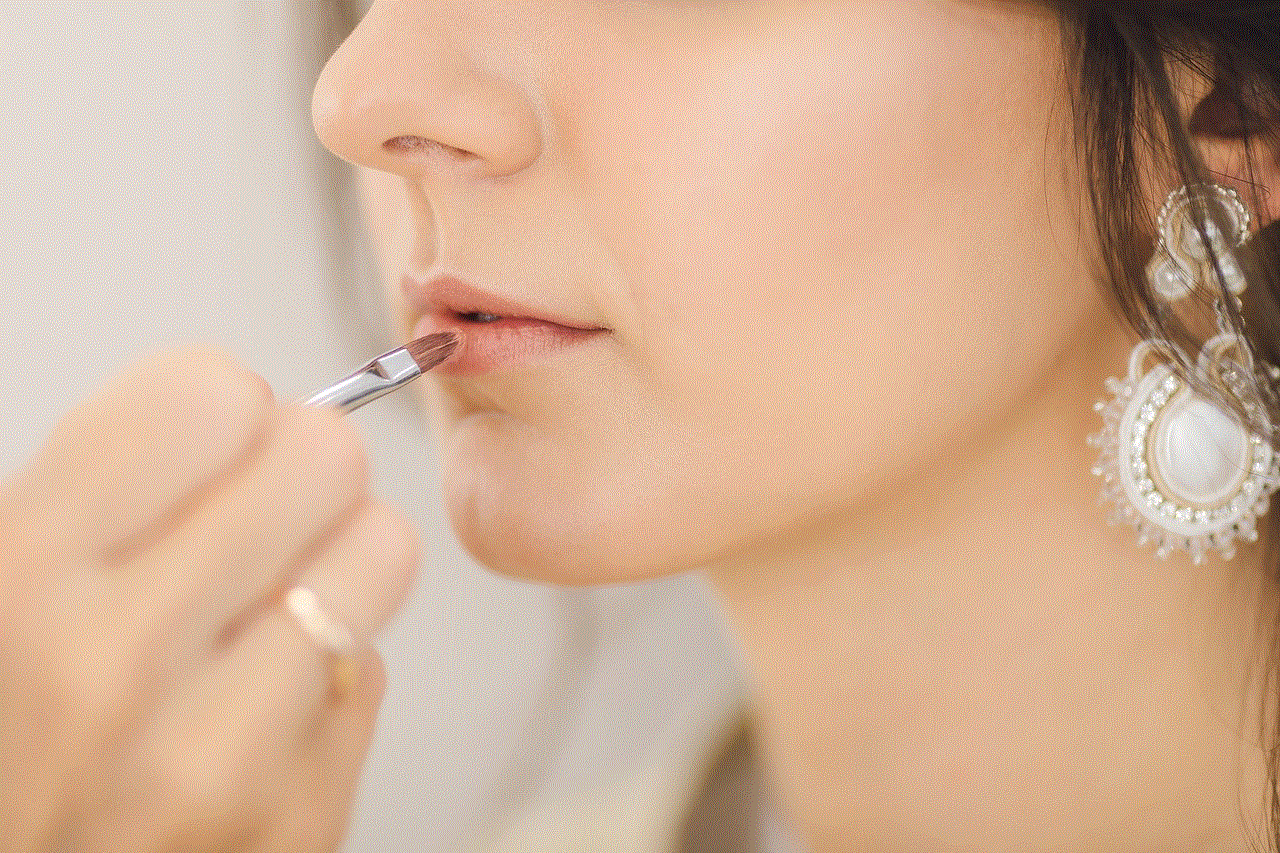how to catch a cheating husband on whatsapp
Infidelity is a painful reality that many couples have to face. The trust and bond between partners is shattered when one of them is caught cheating. While infidelity can happen in many ways, one of the most common platforms for cheating nowadays is through messaging apps like WhatsApp .
WhatsApp has become the go-to platform for communication for many people around the world. It offers various features like voice and video calls, group chats, and the ability to share media files. However, these features also make it easier for someone to cheat. If you suspect that your husband is cheating on you through WhatsApp, here are some ways to catch him in the act.
1. Check His Phone
The first step in catching a cheating husband on WhatsApp is to check his phone. This may sound obvious, but many people overlook this step. Look for any suspicious messages or conversations with unknown numbers or names that seem unfamiliar to you. Pay attention to the timing of the messages as well. If your husband is receiving or sending messages at odd hours, it could be a red flag.
2. Look for Deleted Messages
WhatsApp has a feature that allows users to delete messages for both parties. If your husband is cheating, he may be using this feature to hide any incriminating evidence. However, there are ways to recover these deleted messages. You can use third-party apps or consult a professional to help you retrieve these messages.
3. Use a Spy App
If checking your husband’s phone is not an option, you can use a spy app to monitor his WhatsApp activity. These apps are designed to track messages, calls, and even location in real-time. Some of the popular spy apps for monitoring WhatsApp include mSpy, Spyzie, and FlexiSpy. However, be sure to use these apps legally and with your husband’s consent if possible.
4. Check His WhatsApp Web
WhatsApp Web is a feature that allows users to access their WhatsApp account on a computer or laptop. If your husband is using WhatsApp Web, you can check his account by going to web.whatsapp.com and scanning the QR code on his phone. This will give you access to his chats and conversations in real-time.
4. Look for Changes in His Behavior
Cheating often comes with changes in behavior. If your husband is cheating on you through WhatsApp, you may notice some changes in his behavior. He may become secretive and possessive of his phone. He may also spend more time than usual on his phone, especially at odd hours. These changes in behavior could be a sign that he is hiding something from you.
5. Monitor His Online Status
WhatsApp has a feature that shows when a user was last online. If your husband’s last seen status is always hidden, it could be a sign that he is trying to hide something from you. Also, if you notice that he is online at odd hours, it could be a sign that he is communicating with someone else.
6. Check His Status and Profile Picture
Another way to catch a cheating husband on WhatsApp is by checking his status and profile picture. If he has changed his status to something suspicious or has a picture with another woman, it could be a sign that he is having an affair. However, keep in mind that these changes could also be innocent, so it is best to have concrete evidence before confronting him.
7. Use WhatsApp’s live location Feature
WhatsApp has a feature that allows users to share their live location with their contacts. If your husband is cheating on you and meeting with someone else, you can use this feature to track his location in real-time. This feature can also be useful if your husband tells you he is somewhere but his location shows otherwise.
8. Ask for His Phone
If you suspect that your husband is cheating on you through WhatsApp, you can ask for his phone to check for any incriminating evidence. However, be prepared for a possible denial and be aware that he may have already deleted any proof of his infidelity.
9.. Follow Him
If you have concrete evidence that your husband is cheating on you through WhatsApp, you can follow him to see where he goes and who he meets. However, this approach can be risky and confrontational, so it is best to do it discreetly and with the help of a trusted friend or family member.
10. Confront Him
Confronting your husband about his infidelity is never easy, but it is necessary to address the issue and find closure. Before you confront him, make sure you have enough evidence to support your claims. Be calm and collected when you talk to him, and try to have an open and honest conversation. If he denies it, show him the evidence and give him a chance to explain himself.
In conclusion, catching a cheating husband on WhatsApp requires a combination of trust, communication, and evidence. It is essential to have concrete evidence before confronting him to avoid any misunderstandings. It is also crucial to handle the situation calmly and have an open and honest conversation. Regardless of the outcome, remember to take care of yourself and seek support from friends and family during this difficult time.
so stands for



`So` is a small and seemingly insignificant word, often used as a conjunction or adverb in everyday language. However, when used as an abbreviation, `so` can take on a whole new meaning and purpose. In this article, we will explore the origins and usage of the abbreviation `so` and delve into its various contexts and connotations.
The word `so` is derived from the Old English word `swa`, meaning “in this way” or “thus.” Over time, it evolved into the Middle English word `so`, which had a similar meaning. In the early 14th century, `so` was used as a conjunction to introduce a consequence or result, as in “I am tired, so I will go to bed.” It wasn’t until the late 19th century that `so` was shortened to an abbreviation, often used in informal or colloquial speech.
One of the most common uses of `so` as an abbreviation is to indicate agreement or understanding. For example, if someone says “I am going to the store,” the other person may respond with “So?” as a way of asking “What’s your point?” or “Why are you telling me this?” This usage of `so` can also be seen in phrases such as “So what?” or “So be it,” which convey a sense of indifference or acceptance.
Another popular context for the abbreviation `so` is in the phrase “so what?” In this case, it is often used as a rhetorical question to express skepticism or disbelief. For instance, if someone were to say “I won the lottery,” the response “So what?” may be interpreted as “Yeah right, I don’t believe you.” This usage of `so` can also be seen as dismissive or sarcastic, depending on the tone and context.
In recent years, `so` has taken on a new meaning and usage in the world of social media and texting. It is now often used as a standalone response or as a way to show agreement or understanding. For example, if someone were to say “I can’t believe she said that,” a common response may be “So true.” This usage of `so` is similar to the phrase “That’s so true,” but with the word `that` omitted. It is a way to express strong agreement or validation of a statement.
On the other hand, `so` can also be used as a way to express disagreement or disapproval. This usage is often seen in the phrase “not so much,” which is used to indicate that something is not as good or desirable as it may seem. For instance, if someone were to say “I love spicy food,” the response “Not so much” would indicate that the person does not share the same sentiment.
In addition to its use as a standalone response, `so` can also be used in conjunction with other words or phrases to convey a specific meaning. For example, “so far” is used to indicate the extent of something, while “so what if” is used to downplay or dismiss the significance of something. These phrases are often used in casual conversations and can vary in meaning depending on the context and tone.
In some cases, `so` can also be used as an intensifier, similar to the words “very” or “extremely.” For example, if someone were to say “I am so hungry,” it would mean that they are extremely hungry. This usage of `so` is common in informal speech and can be seen in phrases such as “so good,” “so happy,” or “so tired.”
Another interesting usage of `so` is in the phrase “so-called.” This is often used to express skepticism or doubt about the validity of something. For example, if someone were to say “I am an expert in this field,” the response “so-called expert” would imply that the person is not actually an expert and their knowledge or expertise is questionable. This usage of `so` is also seen in phrases such as “so-called friends” or “so-called love.”
In some cases, `so` can also be used as an abbreviation for “significant other.” This usage is common in the LGBTQ+ community, where `so` is used as a gender-neutral term to refer to one’s romantic partner. For example, if someone were to say “I am going on vacation with my SO,” it would mean that they are going with their significant other. This usage of `so` is also seen in phrases such as “my SO and I” or “SO’s birthday.”
In the world of business and finance, `so` is often used as an abbreviation for “shareowner” or “stock owner.” This usage is commonly seen in financial reports and statements, where `so` is used to refer to the shareholders of a company. It is also used in phrases such as “SO equity” or “SO meeting” to indicate the involvement of shareholders in a particular event or decision.



In the medical field, `so` is used as an abbreviation for “significant others,” which refers to a person’s family, friends, or loved ones who are involved in their care and treatment. This usage is often seen in medical records and charts to indicate the presence or involvement of a patient’s support system. It is also used in phrases such as “SO support” or “SO involvement.”
In conclusion, `so` may be a small and seemingly insignificant word, but as an abbreviation, it has a wide range of meanings and uses. It can indicate agreement, disagreement, understanding, skepticism, and many other emotions and attitudes. Its usage has evolved over time, and it continues to change and adapt in different contexts and cultures. Whether used in casual conversations, social media, or professional settings, `so` remains a versatile and adaptable abbreviation that adds depth and nuance to our language.
a real one meaning
The phrase “a real one” is often used in everyday language to imply authenticity and genuineness. It is a term that carries a lot of weight and can be applied to various situations and objects. From relationships to products, a “real one” holds a special place in our lives and is highly valued. But what does it really mean to be a “real one”? In this article, we will explore the meaning of this phrase and how it impacts our lives.
To understand the true meaning of “a real one”, we first need to look at its origins. The phrase gained popularity in the hip-hop culture of the 1990s and was often used to describe someone who is genuine, dependable, and loyal. It was a way for artists to pay tribute to their closest friends and allies, who they considered to be “real ones” in a world full of fakeness and pretense. Over the years, the phrase has evolved and is now used in a wider context, beyond the hip-hop culture.
Essentially, a “real one” is someone who is true to themselves and others. They are not afraid to show their true colors and stand by their beliefs, even if it means going against the norm. A “real one” is someone who is authentic and unapologetically themselves, without trying to conform to societal standards. They are genuine and have a strong sense of integrity and moral values. They are not afraid to speak their mind and stand up for what they believe in.
Being a “real one” also means being loyal and dependable. A real one is someone who will always have your back, no matter what. They are there for you through the good times and the bad, offering their support and guidance. They are honest and reliable, always keeping their word and following through with their actions. A “real one” is someone you can trust and count on, a rare quality in today’s fast-paced and superficial world.
Another characteristic of a “real one” is their ability to be vulnerable and show their emotions. In a society where vulnerability is often seen as a weakness, a “real one” is not afraid to express their feelings and be open about their struggles. They understand that being vulnerable is a sign of strength and shows their authentic self. This quality makes them relatable and allows others to connect with them on a deeper level.
Being a “real one” also means being self-aware and constantly working on self-improvement. They are not afraid to acknowledge their flaws and work towards becoming a better version of themselves. A real one is introspective and is always looking for ways to grow and evolve. They are open to constructive criticism and use it to better themselves, rather than getting defensive or offended.
One of the most significant aspects of being a “real one” is their ability to uplift and support others. A real one is not envious or jealous of others’ success, but rather celebrates it and encourages them to achieve their goals. They understand that someone else’s success does not diminish their own, and they genuinely want to see others succeed. A real one is a cheerleader for their loved ones and is always willing to lend a helping hand.
In relationships, a “real one” is a rare gem. They are not afraid of commitment and are fully invested in their partner. They understand that relationships require effort and are willing to put in the work to make it successful. A real one is supportive and understanding, always looking out for their partner’s best interests. They are honest and communicate effectively, which creates a strong foundation for a healthy and lasting relationship.



In terms of products, a “real one” is something that is of high quality and meets its intended purpose. In a world full of knock-offs and imitations, a “real one” stands out for its authenticity and functionality. It is something that will not disappoint and will last a long time. From clothing to electronics, a “real one” is worth the investment and will provide value for its price.
In conclusion, the phrase “a real one” holds a lot of weight and is used to describe someone or something that is genuine, dependable, and authentic. It is a term that has evolved from its origins in the hip-hop culture and is now widely used in various contexts. A “real one” is someone who is true to themselves and others, loyal and dependable, vulnerable and self-aware, and uplifts and supports those around them. It is a term that represents the best qualities of humanity and is something we should all strive to be. So, the next time someone calls you a “real one”, take it as a compliment and continue being your authentic self.